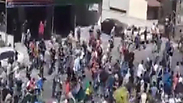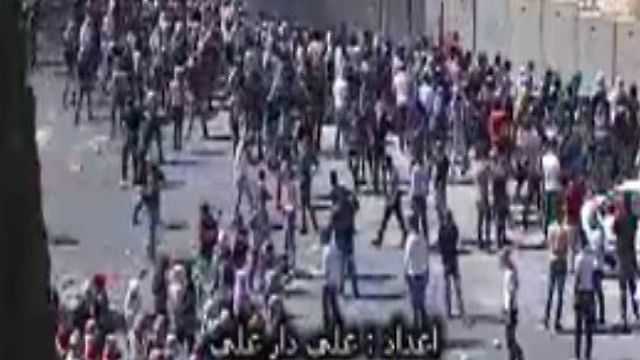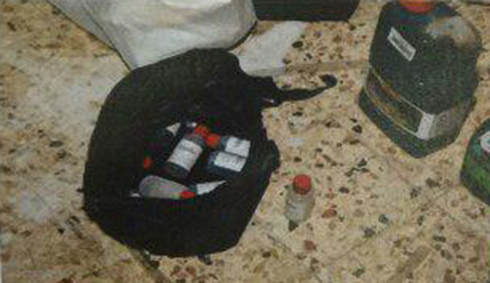
Halabi has since become one of the current escalation's main symbols in the eyes of Palestinians. The first few months of the terror wave saw massive violent protests in AQU. Students attempted to break down the university-adjacent border fence and confronted Israeli Border Police on a nearly daily basis.
Some of them have also been actively involved in terrorism. Several AQU students established an explosive lab in Abu Dis, intending to perpetrate suicide attacks as well as non-suicide bombings. The Shin Bet, along with the IDF and the Israel Police, has exposed the existence of a large Hamas terrorist presence in the town.
The student terrorist cell was exposed when Givati Brigade soldiers discovered an explosives lab in Abu Dis, as well as a store in Ramallah that was supplying it with chemicals. Duvdevan (an IDF special operation unit that operates undercover among the Palestinian population) and Yamam (Israel Police SWAT unit) forces later raided the homes of the cell's members and took them in for questioning. Their commander, Ahmed Gamal Moussa Azzam, had been communicating with his superiors in Gaza, from whom he also received training and instruction in the preparation of explosives.
The Al-Quds University said in response, "We vehemently deny and condemn this libel and incitement and strongly deny any involvement in violence of any kind. To this end we invite the authors of the piece Elior Levy and Roi Yanovsky and any other Israeli journalists to come visit our campus and engage in some honest journalistic reporting. We are a university and are only involved in educating students.
"The article itself is a 'red herring' that falsely concludes Al Quds University’s involvement in affairs that have nothing in fact to do with the university. The laboratory mentioned in the article was not located in the university. Similarly, if one of Al –Quds University’s 13,000 students is diagnosed with schizophrenia, one cannot conclude that we are training students to be schizophrenics."


















